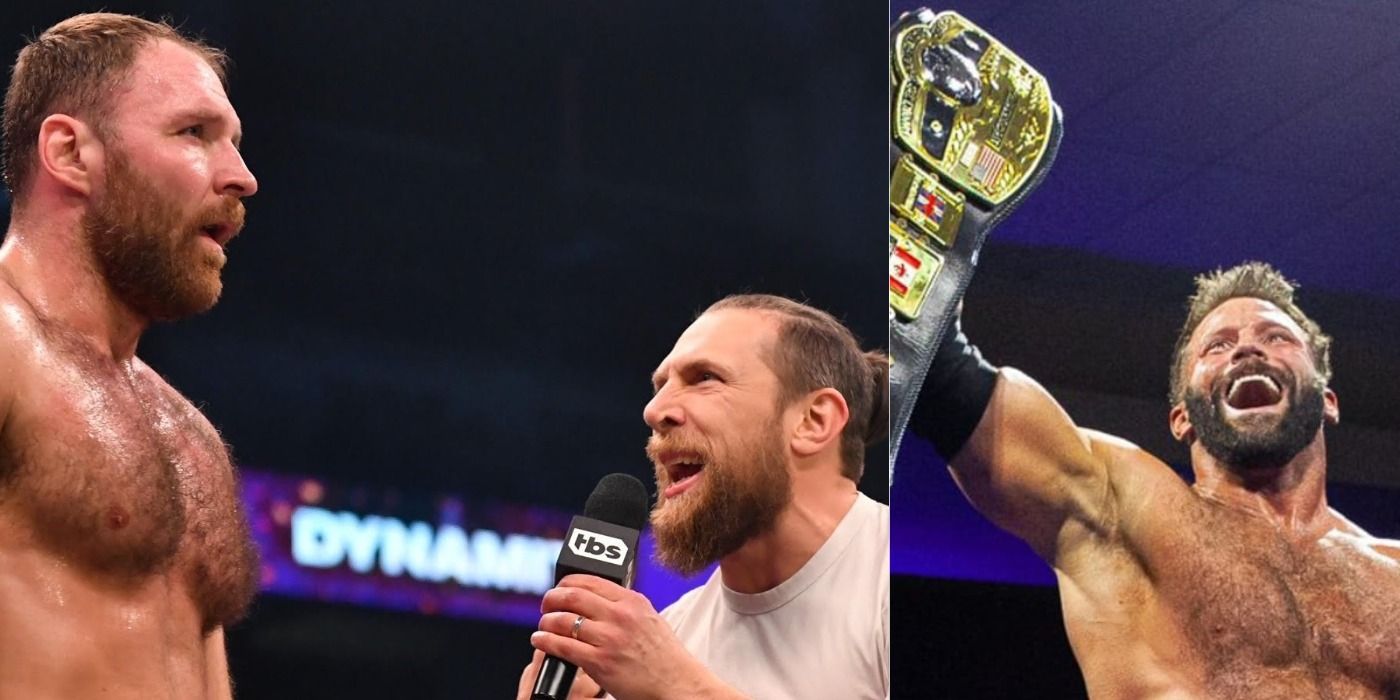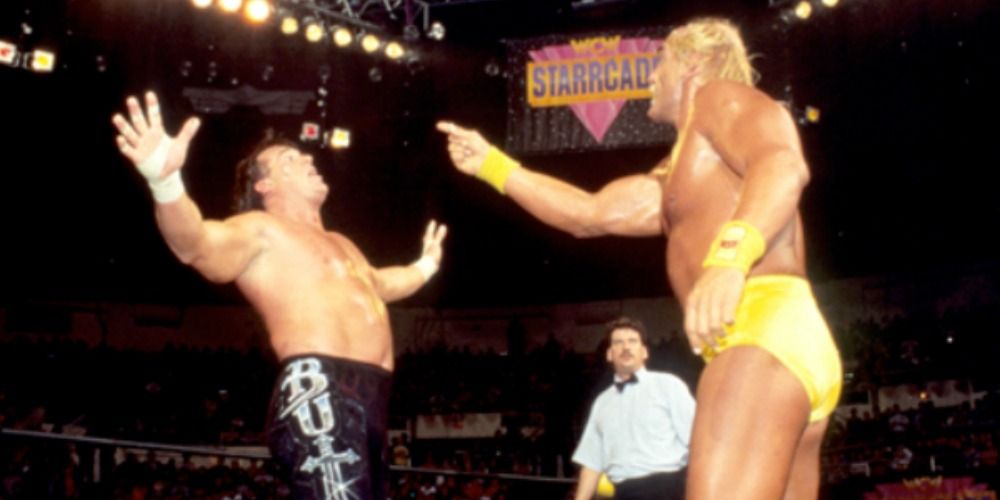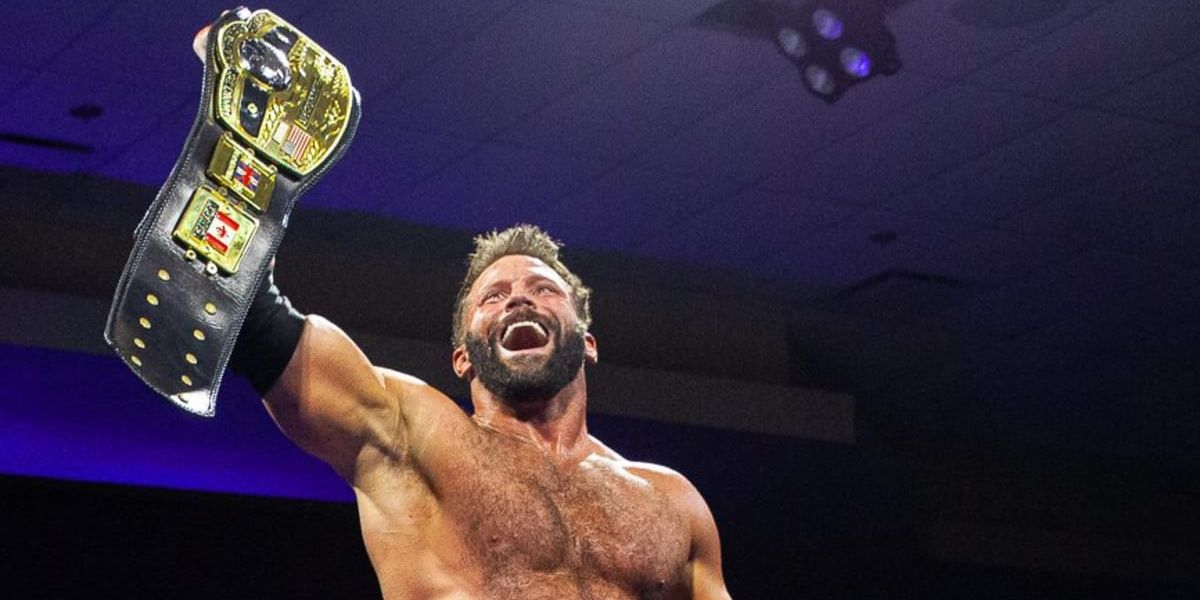WWE is the largest wrestling promotion in the world and, for many wrestlers, signing with them marks the pinnacle of their careers. Indeed, even for talents who don’t make it out of NXT, or who take up residence in the lowest ranks of the main roster, the work they do under the WWE banner is likely to have more eyeballs on it and garner them more name recognition than even a main event run in most smaller companies. Wrestling fans have taken to identifying WWE alumni as “ex-WWE wrestlers,” but the description is often a bit misguided in its framework.
The Connotations Of Being An Ex-WWE Wrestler
Being labeled as an ex-WWE wrestler can be a double-edged sword. On one hand, the title does imply some degree of credibility, as most performers who sign with WWE are either very good at their craft or have some form of star potential that caught the eye of WWE management.
However, the label can also have some stigmas. Some of that relates to the “sports entertainment” model of WWE that can mean less technical skill, as opposed to a focus on showmanship. Moreover, there’s a narrative that promotions like AEW or Impact Wrestling give WWE alumni preferential treatment at the expense of “homegrown” talents who have been loyal to the company whom fans are more organically attached to.
WCW And Impact Wrestling Established The Ex-WWE Wrestler Stigmas
The negative connotations associated with being an ex-WWE wrestler largely stem from WCW and Impact Wrestling history. WCW in particular wholly reinvented itself in 1994 with the arrival of Hulk Hogan. In addition to The Hulkster himself immediately supplanting guys like Ric Flair, Sting, and Big Van Vader as the franchise player, it wasn’t long before Randy Savage joined him toward the top, in addition to The Honky Tonk Man, Jim Duggan, John Tenta, and Brutus Beefcake were just a few of the WWE-established names who signed soon after. While some of these performers were quite talented and there’s a reasonable case to be made they drew extra eyes to the product, there’s also the reality that the bar lowered in terms of overall quality of in-ring performances. That’s not to mention talents like Dustin Rhodes and Stunning Steve Austin shifting to the margins before ultimately leaving WCW altogether.
A similar narrative played out in Impact Wrestling. The fact that Christian Cage or Kurt Angle got pushed to the tip-top of the brand was arguably excusable because they were individual talents coming in, at or around the peak of their considerable abilities. However, when the Hogan regime took over in late 2009 it turned Impact upside down with another influx of WWE alumni and a major shift in wrestling aesthetics toward more cartoonish booking. It may be too soon to fairly assess AEW’s use of talents previously signed to WWE, but noteworthy pushes garnered by Chris Jericho, Jon Moxley, Christian Cage, CM Punk, and Bryan Danielson have produced some similar conversations among critics.
The Ex-WWE Wrestler Label Is Too Broad And Ultimately Meaningless
One of the problems with the ex-WWE wrestler label is that it unfairly paints with the same brush anyone who spent any time in WWE. Sure, it’s fair to knock a way-past-their-prime Nasty Boys tag team or Orlando Jordan showing up in Impact in 2010 with little to offer besides the name recognition from their WWE pedigrees. Similarly, Mick Foley had no business winning a world title there in 2009, when he was a shell of his former self physically and thriving off a legacy he’d built a decade before. However, it’s not fair to suggest AEW’s Jon Moxley—who exploded out of WWE with a desire for greater creative freedom and to work a more hardcore style—belongs in the same conversation.
There are also cases like Matt Cardona. After a decade and a half in WWE, his legacy is inextricable from the time spent under the moniker Zack Ryder. However, he has dramatically reinvented himself in the last two years, emerging as the ultimate independent wrester for his hustle bouncing around the country to make shots in front of different sized crowds, working different styles, and continuing to make the most of his considerable social media clout to keep feeling like a star.
In the end, the label “ex-WWE wrestler” marginalizes talent, taking what may, on the surface seem like an advantage, and making it a stigma. Talents who are working hard and are still capable performers deserve credit, as opposed to being dismissed as living off their past glory days. The term should be reserved for talents who are more legitimately washed up, for whom having a WWE run on their resumes may truly be their only worthy selling point.




